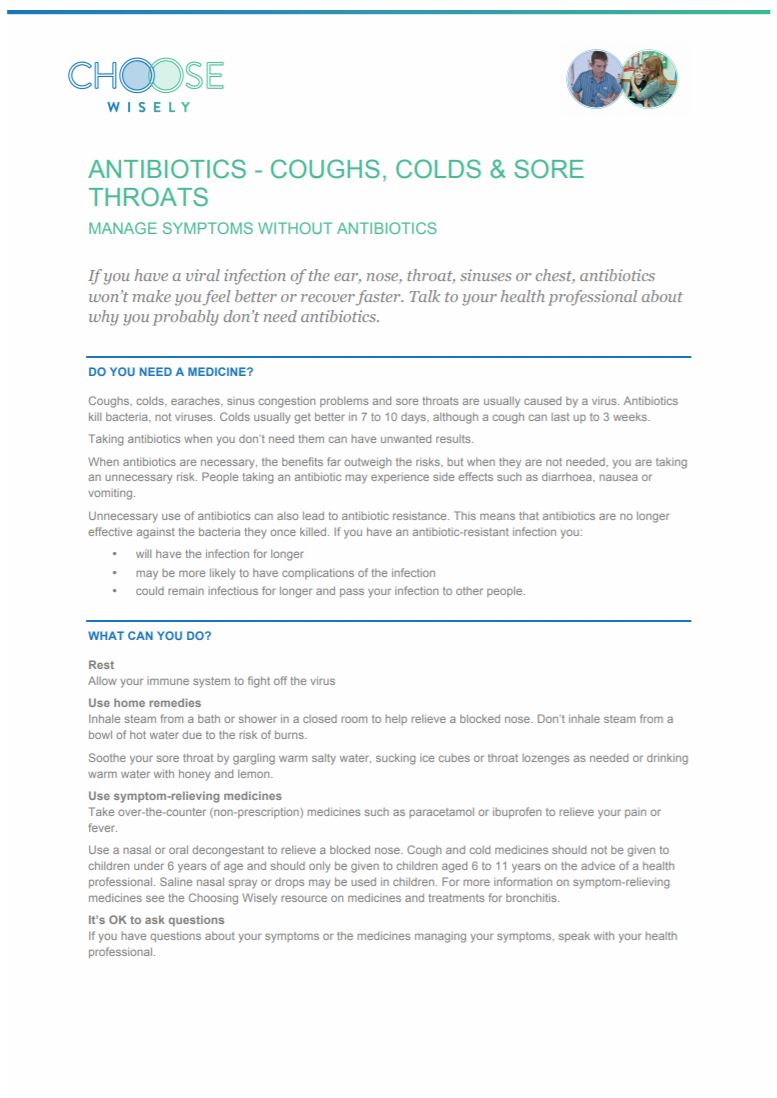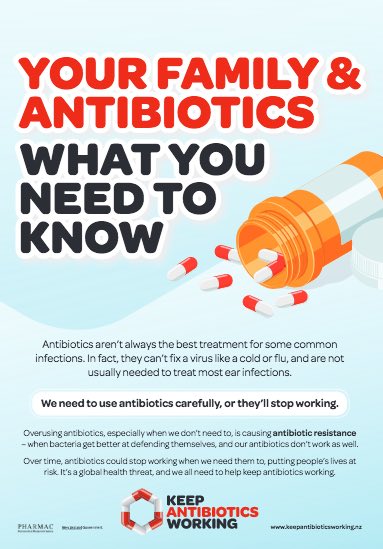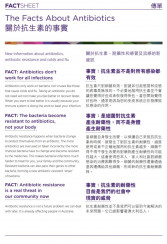Antibiotics (or antibacterials) are a group of medicines that treat bacterial infections. In the past, other substances were found to kill bacteria, but many of these, such as mercury, were almost as dangerous to our own cells as the bacteria.
Antibiotics work because bacteria have certain differences from human cells, so they can kill the bacteria without hurting us.
| Examples of antibiotics used in New Zealand |
||
Antibiotic resistance
In just a few short decades, the misuse and overuse of antibiotics have allowed some bacteria to genetically mutate to resist these medicines. This is called antibiotic resistance. If bacteria become resistant to antibiotics, this means the antibiotics stop working – this is a serious threat to everyone’s health. Some bacteria, or 'super bugs', are now resistant to all known antibiotics and can't be treated easily.
Read more about antibiotic resistance.









